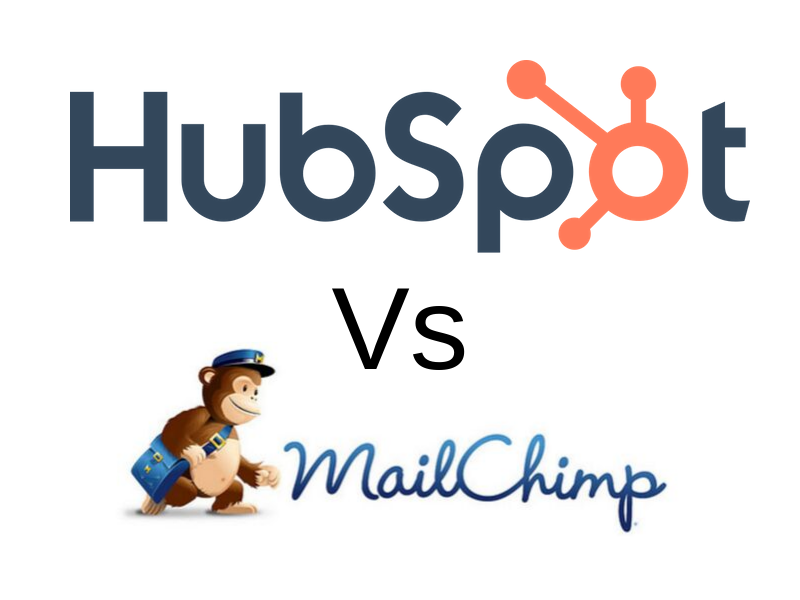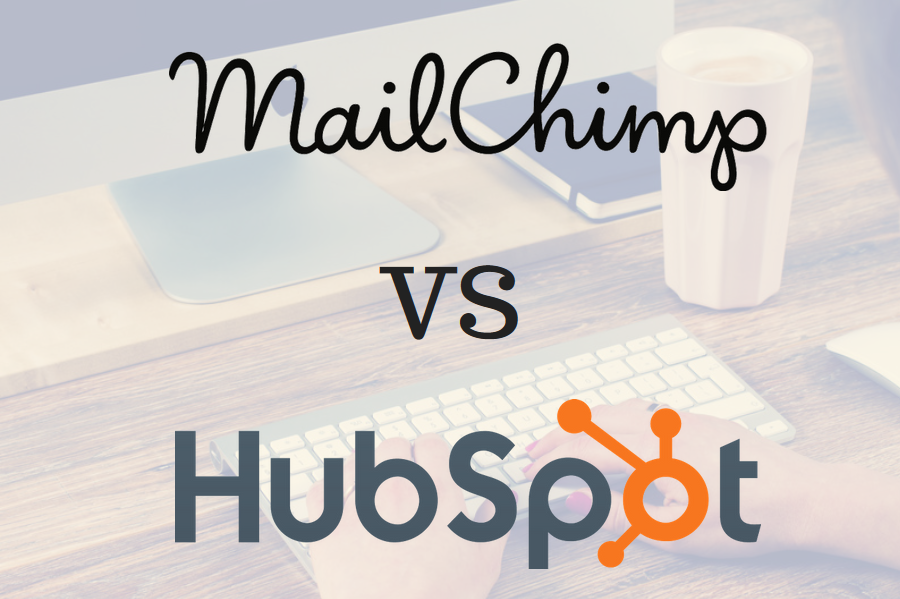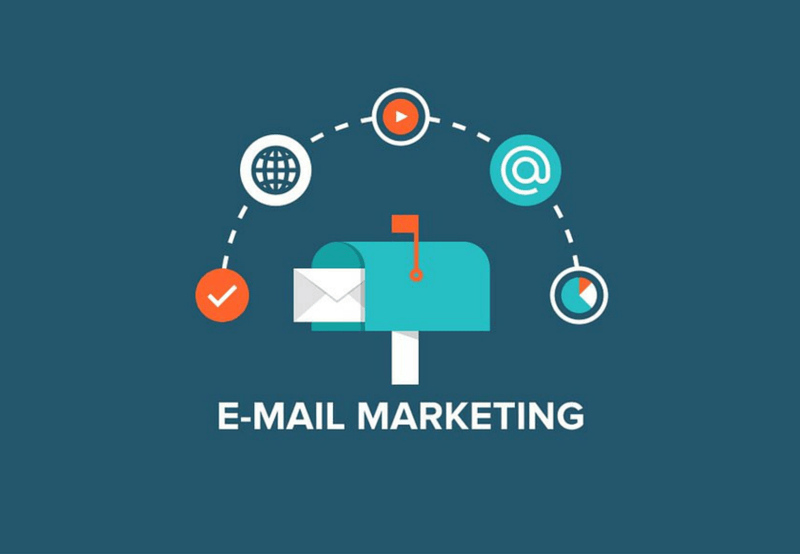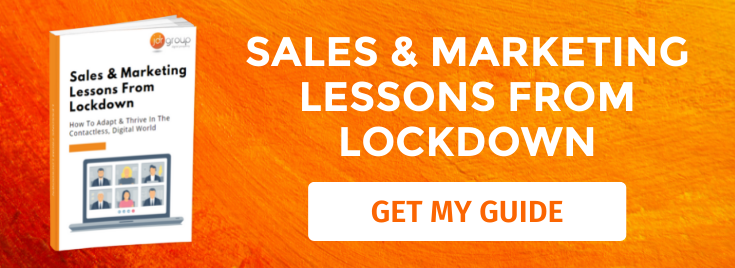MailChimp Hit By Data Security Breach – Is HubSpot Secure?
by Andy Gibbins on 19-Jan-2023 13:00:00

Email marketing automation giant MailChimp fell victim to a major data security breach this week after a phishing attack enabled thieves to steal passwords and login details from MailChimp employees.
The stolen credentials were then co-opted to access MailChimp’s internal account administration tools, after which the cybercriminals stole over 100 subscriber mailing lists from users, as well as business email addresses, website URLs, and other contact data.
An Immediate Response
To their credit, MailChimp detected the breach at an early stage and took immediate action to close down the access loopholes and inform the contacts of all compromised accounts (133 affected customers) within 24 hours.
Unfortunately, however, this isn’t the first time that MailChimp has been hit by a successful cyber-attack as the same occurred in April 2022. A large number of businesses and individuals were targeted by phishing attacks based on stolen mailing lists.
In the cloud-based service industry, one successful cyber-attack is one attack too many.
The problem is that stolen mailing lists could include thousands of personal and business email addresses, phone numbers, and social media accounts – each of which could become the target of identity theft and further attempted data breaches.
A second successful breach in 12 months is going to force MailChimp to have to think very carefully about the security of its internal administrative systems and how to properly safeguard customer information from this point on.
How Secure Are Cloud-Based CRMs?
The attack also raises broader questions about the security of cloud-based CRMs and marketing platforms in general. With businesses entrusting their service providers with the sensitive personal data of hundreds of customers, to what extent is this trust justified, and what steps can businesses take to reduce their operational risk?
Fortunately, and perhaps surprisingly, these successful attacks on household name cloud service companies are noteworthy due to being comparatively rare. Cybercriminals target companies like MailChimp, HubSpot, and Salesforce all the time. Even a moderately successful attack could be worth thousands in stolen revenue for a lucky hacker.
Cloud service vendors know this, and consequentially invest heavily in the latest security safeguards to stay one step ahead of would-be criminals. By and large, they have been successful in this.
The MailChimp attack was unfortunate for the people involved, but amid the failure, the incident also highlights the success of MailChimp’s rapid response strategy, transforming a data breach on a potentially astronomical scale into a fairly minor incident, affecting only a tiny proportion of MailChimp’s customer base.
Despite the recent breach, we would have no compunction in reassuring MailChimp customers that the operational risk of using the platform is relatively low and is certainly outweighed by the benefits of using the platform.
But What About HubSpot? - What Is The Platform’s Cyber Security Record? Should Users Be Concerned?
Reassuringly, HubSpot has an exceptionally strong record on data security, and they are well-known for their commitment to providing best-in-class secure data hosting and reliable cyber security practices. The vendor uses industry-standard data safeguarding services such as Amazon Web Services (AWS) and follows the data protection and security standards of SOC2, PCI, HIPAA, and GDPR, among others.
HubSpot also offers two-factor authentication to all their users and uses 256-bit encryption for all their customer data – precautions that minimise the risk of a successful phishing attack by increasing the number of steps a criminal must overcome before accessing sensitive customer databases.
To date, HubSpot has not reported any data breaches or other security incidents, but they are always reviewing and updating its security systems to remain one step ahead of potential threats.
How To Improve Security When Choosing A Cloud Service Vendor
Businesses across the UK are increasingly relying on cloud-based customer relationship management (CRM) systems. For every successful attack, there are millions of unsuccessful attempts, and security standards across the industry are generally very robust and reliable. As companies survey the benefits of this technology, however, they must also consider the security risk implications posed by using a cloud-based CRM system, however negligible.
Key questions for SMEs to consider include not only if their data is secure but also who will have access to it on the vendor side and how it can be accessed. That is why businesses should evaluate the level of encryption and other safety features that a cloud-based CRM provider offers before opting for such a service. The ability to properly authenticate employee and customer credentials and encrypt sensitive data are two among many important factors in selecting a trustworthy cloud-based CRM solution - making sure that the confidential information used by the business remains secure even when stored in an offsite location.
Should You Purchase Cyber Insurance?
To reduce operational risk further, businesses may wish to take out a cyber insurance policy to offset any financial losses arising from data breaches, cybercrime, and computer malware activities. The insurance policy will also cover any legal costs incurred in defending your business against litigation due to a data breach or compromised network if one should occur. Having cyber insurance in place helps businesses maintain their public reputation and credibility as service providers by providing them with the resources to contain and resolve cyber security incidents quickly and efficiently on behalf of their customers.
Next Steps
We take cyber security extremely seriously at JDR and closely monitor the emergence of new technologies, threats, and security assets on the market – as well as the safety record of our software partners. Your customer details and sensitive data are safe with HubSpot. We have every faith in the security safeguards employed by our partners and their record in successfully pre-empting and defeating attempted security incidents – as well as their commitment to continual updates and improvements in meeting future threats.
To find out more about data security and how you can keep your employees, customers, and supply partners safe in the digital economy, please call 01332 343281 today.
Image Source: Pexels
- Inbound Marketing (SEO, PPC, Social Media, Video) (829)
- Strategy (368)
- Sales & CRM (195)
- Marketing Automation & Email Marketing (191)
- Business Growth (167)
- Website Design (161)
- Hubspot (138)
- Lead Generation (117)
- Google Adwords (99)
- Content Marketing (94)
- Conversion (53)
- Case Studies (47)
- News (47)
- Ecommerce (39)
- Webinars (35)
- SEO (26)
- AI (20)
- Events (19)
- LinkedIn Advertising (17)
- Video (17)
- Video Selling (15)
- Software training (13)
- Niche business marketing (11)
- The Digital Prosperity Podcast (10)
- Facebook Advertising (6)
- HubSpot Case Studies (5)
- January 2026 (7)
- December 2025 (15)
- November 2025 (6)
- October 2025 (17)
- September 2025 (16)
- August 2025 (14)
- July 2025 (14)
- June 2025 (5)
- May 2025 (19)
- April 2025 (15)
- March 2025 (13)
- February 2025 (13)
- January 2025 (8)
- December 2024 (2)
- November 2024 (4)
- October 2024 (21)
- September 2024 (4)
- August 2024 (8)
- July 2024 (14)
- June 2024 (16)
- May 2024 (25)
- April 2024 (15)
- March 2024 (18)
- February 2024 (5)
- January 2024 (10)
- December 2023 (6)
- November 2023 (10)
- October 2023 (13)
- September 2023 (12)
- August 2023 (14)
- July 2023 (13)
- June 2023 (14)
- May 2023 (15)
- April 2023 (13)
- March 2023 (14)
- February 2023 (13)
- January 2023 (15)
- December 2022 (13)
- November 2022 (6)
- October 2022 (8)
- September 2022 (22)
- August 2022 (15)
- July 2022 (13)
- June 2022 (16)
- May 2022 (14)
- April 2022 (16)
- March 2022 (17)
- February 2022 (11)
- January 2022 (8)
- December 2021 (6)
- November 2021 (7)
- October 2021 (11)
- September 2021 (10)
- August 2021 (7)
- July 2021 (7)
- June 2021 (4)
- May 2021 (4)
- April 2021 (1)
- March 2021 (3)
- February 2021 (5)
- January 2021 (4)
- December 2020 (7)
- November 2020 (6)
- October 2020 (5)
- September 2020 (9)
- August 2020 (18)
- July 2020 (17)
- June 2020 (17)
- May 2020 (10)
- April 2020 (21)
- March 2020 (24)
- February 2020 (21)
- January 2020 (12)
- December 2019 (23)
- November 2019 (12)
- October 2019 (14)
- September 2019 (16)
- August 2019 (15)
- July 2019 (13)
- June 2019 (6)
- May 2019 (8)
- April 2019 (4)
- March 2019 (2)
- February 2019 (2)
- January 2019 (2)
- December 2018 (3)
- November 2018 (24)
- September 2018 (11)
- August 2018 (9)
- June 2018 (3)
- May 2018 (6)
- April 2018 (14)
- March 2018 (12)
- February 2018 (16)
- January 2018 (15)
- December 2017 (15)
- November 2017 (18)
- October 2017 (23)
- September 2017 (19)
- August 2017 (28)
- July 2017 (27)
- June 2017 (25)
- May 2017 (18)
- April 2017 (17)
- March 2017 (16)
- February 2017 (17)
- January 2017 (14)
- December 2016 (21)
- November 2016 (27)
- October 2016 (25)
- September 2016 (16)
- August 2016 (20)
- July 2016 (19)
- June 2016 (14)
- May 2016 (20)
- April 2016 (24)
- March 2016 (22)
- February 2016 (28)
- January 2016 (27)
- December 2015 (28)
- November 2015 (19)
- October 2015 (9)
- September 2015 (12)
- August 2015 (5)
- July 2015 (1)
- June 2015 (10)
- May 2015 (3)
- April 2015 (11)
- March 2015 (14)
- February 2015 (15)
- January 2015 (12)
- December 2014 (2)
- November 2014 (23)
- October 2014 (2)
- September 2014 (2)
- August 2014 (2)
- July 2014 (2)
- June 2014 (7)
- May 2014 (14)
- April 2014 (14)
- March 2014 (7)
- February 2014 (2)
- January 2014 (7)
- December 2013 (9)
- November 2013 (14)
- October 2013 (17)
- September 2013 (3)
- August 2013 (6)
- July 2013 (8)
- June 2013 (4)
- May 2013 (3)
- April 2013 (6)
- March 2013 (6)
- February 2013 (7)
- January 2013 (5)
- December 2012 (3)
- November 2012 (2)
- September 2012 (1)
Subscribe by email
You May Also Like
These Related Blogs

HubSpot Free Vs MailChimp Free: A Side By Side Comparison
hubspot vs mailchimp MailChimp has a well-deserved reputation as an efficient and versatile email marketing application – especially considering the l …

Mailchimp Vs Hubspot - Which Is Best For Email Marketing?
Most people who know anything about email marketing will have heard of Mailchimp. It is a successful and user-friendly email marketing application tha …

Which Email Marketing Service Is Best? 4 Of The Leading Software Programs Reviewed
There are so many email marketing platforms available that it can be difficult to know where to go to find the right one for you. While most of the ap …




